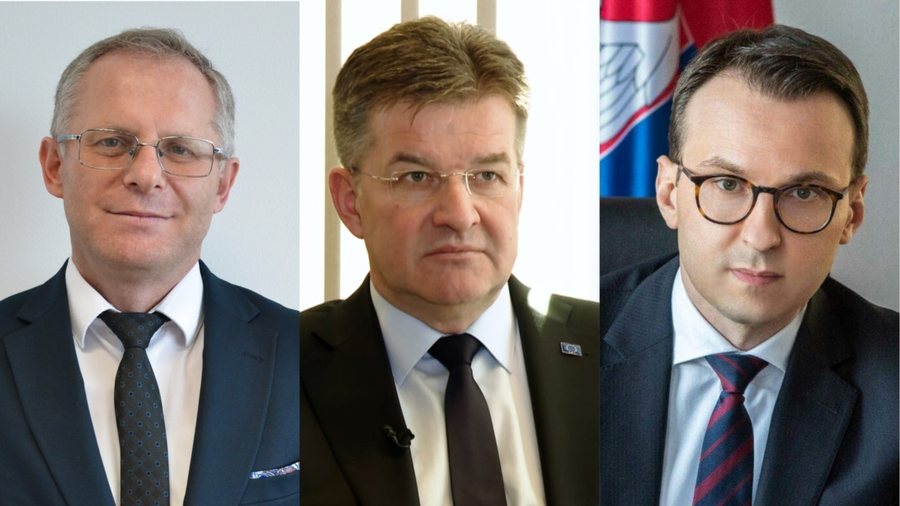
Kosovo and Serbia have agreed on the full implementation of the joint statement on missing persons during a tripartite meeting between the chief negotiators of both countries at the European Union envoy in Brussels on Tuesday.
This was confirmed on December 17 by the head of the delegation of Kosovo, Besnik Bislimi, and that of Serbia, Petar Petkovic, after the meeting with the EU Special Representative for dialogue, Miroslav Lajcak.
Kosovo and Serbia reached an agreement in 2023 on the Joint Declaration on missing persons, within the dialogue for the normalization of relations mediated by the European Union.
The commitments made with this statement include: full access to reliable information, including those with classified status; making available all important documents for determining the fate of missing persons, as well as joint work through a commission chaired by the European Union.
But, until now, none of these have been implemented in practice.
Bislimi said that Kosovo and Serbia will have a joint commission, which will start dealing with these issues from January.
"Now we can move forward to hold the first meeting of the joint commission next month. There are promises from Serbia that there will be no tendency to hinder the work of this commission in the future", said Bislimi.
According to the Red Cross, there are still 1,612 people missing from the war in Kosovo. You can read about who they are here .
Petkovic said that the "last necessary step" has been taken on the issue of missing persons and that now the last obstacle has been removed regarding the implementation of the declaration on missing persons.
"We have the declaration, we have the working regulations and now we have agreed on a joint commission that will support the working group, which, as before, is chaired by the International Committee of the Red Cross," he said.
The last meeting at this level within the dialogue facilitated by the EU took place on October 23 in Brussels. Since then there have been no other meetings.
Bislimi said the issue of missing persons was only one of the topics discussed in Brussels on Tuesday.
He said that in the meeting with Lajcak, he also discussed the agreement on energy, saying that he underlined the "violations" that Serbia has made to the telecom agreement and, "especially by not activating the interconnection lines".
Petkovic said that the integrated border management, veterinary certificates, it was requested to open other crossings for Serbian goods, and telecommunications.
Meanwhile, Bislimi added that what he expressed concern about, in particular, is that Serbia does not want to allow the Government of Kosovo to help the Albanians in the Presheva Valley.
"The relevant ministry in Serbia wants to force the Albanian national council to withdraw the call for humanitarian aid for farms in Serbia, despite the fact that there is complete transparency in it," said Bislimi.
Bislimi said that Lajçak again condemned the November 29 attack on the Ibër-Lepenci water channel in the north of Kosovo and that he has offered the EU's help in the investigation of this case.
Petkovic said that he was the first to raise the issue of the "incident" in Ibër-Lepenc, accusing Kosovo of spreading "false accusations that official Belgrade is involved in that attack".
"I asked Bislim if they have any concrete evidence. Of course, they have no evidence, because it is clear that Belgrade has nothing to do with this," said Petkovic.
Serbia has repeatedly denied Kosovo's accusations that it had a hand in this attack.
Meanwhile, Petkovic said that for the Serbs in Kosovo and for Belgrade, the issue of forming the Association of municipalities with a Serbian majority and de-escalation is important.
"We have spoken about this forcefully and we have also insisted on the bilateral meeting directly with Mr. Bislimi", he said.
This may have been the last meeting mediated by Lajcak, whose mandate will end at the end of January.
In the meantime, it is expected that the head of the foreign policy of the European Union, Kaja Kallas, in cooperation with the member countries, will decide on the continuation of the dialogue, including whether there will be a successor to Lajcak in that position and who it will be. he./REL (A2 Televizion)











